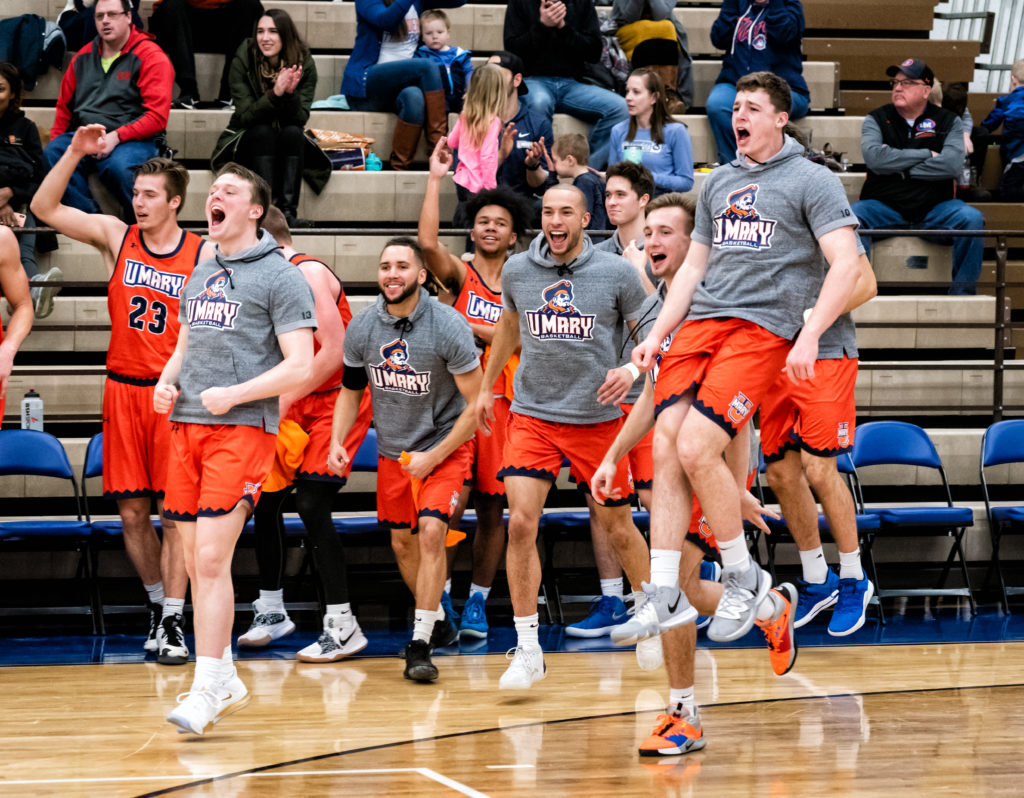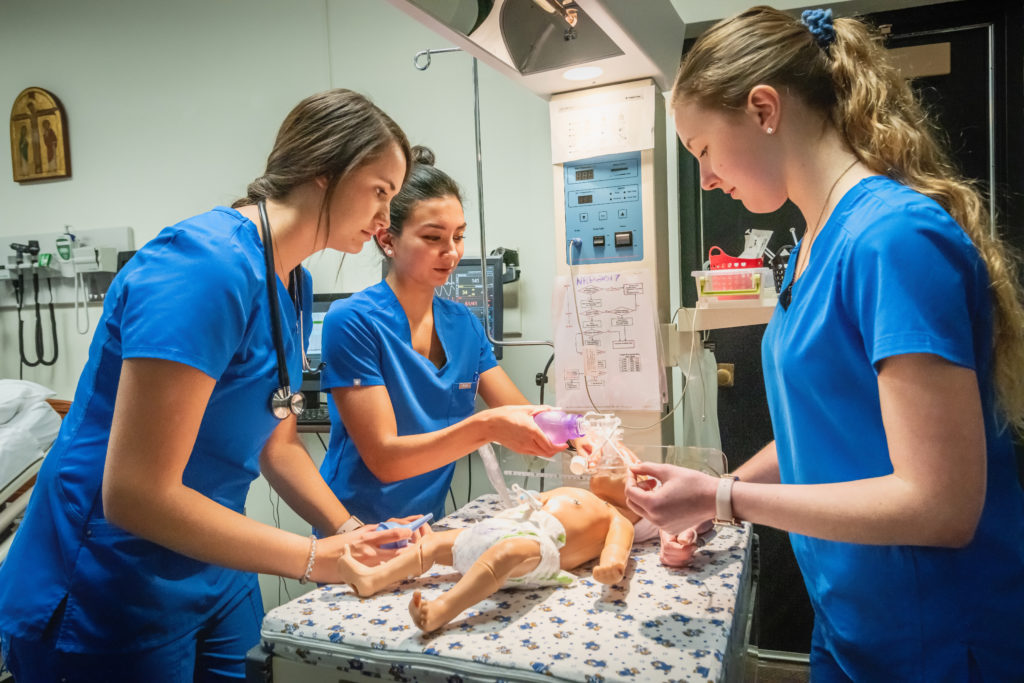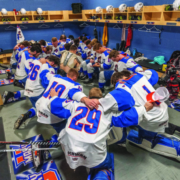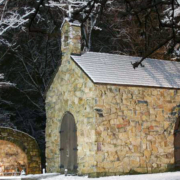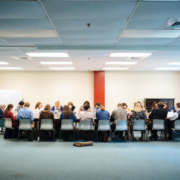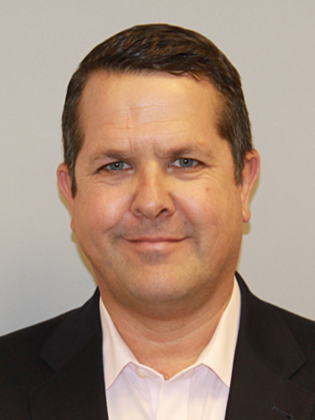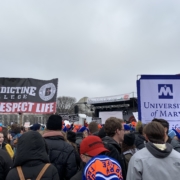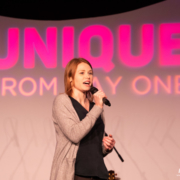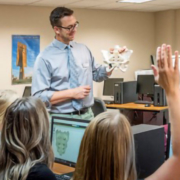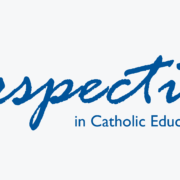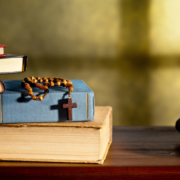Editor’s Note: The Cardinal Newman Society is releasing several articles marking the 50th anniversary of the devastating Land O’Lakes Statement, in which several Catholic university leaders declared Catholic universities independent from “authority of whatever kind, lay or clerical, external to the academic community itself”. In considering the future of Catholic education, it’s impossible to ignore the past. “How did we get here?” is a question essential to determining how many American Catholic colleges and universities can overcome their conformity to secular norms for curriculum, campus life, governance, and academic freedom. Ultimately, these articles serve as hope that the mistakes of the past can be corrected and that God will bless the renaissance of faithful Catholic education in the United States that is underway.
This article was originally published in The Enduring Nature of the Catholic University, a collection of essays released by The Cardinal Newman Society in 2009.
So much about an answer depends on the way one poses the question. In the old story about the two monks who liked to smoke, for instance, it is easy to see why the one who asked if he could pray while smoking received permission, but the one who asked if he could smoke while praying had his request denied.
There is all the difference in the world between asking whether academic freedom is an indispensable condition for intellectual inquiry or is itself the goal. It is surely a crucial condition for real intellectual progress, for we do not know all the answers to our questions. Even figuring out how best to formulate the questions can be a difficult task. The promotion of such freedom is a necessary feature of university life. This is as true of a Catholic institution as of any other. But to think of academic freedom as somehow more than a necessary condition for intellectual progress is to mistake the means for the end. Academic freedom cannot be rightly understood as a permission to advocate for policies that are intrinsically immoral or as an artistic license for the exhibition of what is obscene, for these are not part of the goal. Academic freedom, properly understood, is a sphere for genuine scholarly debate about the truth of things.
Robust and lax views of academic freedom
The effort to take a Catholic view on academic freedom is not to postulate that there is some distinct species of the genus (“Catholic academic freedom”). Quite the contrary—my suggestion is that a Catholic view on academic freedom provides a model of what academic freedom rightly understood ought to look like anywhere. We should not presume that what passes for academic freedom in the secular sphere is the true model, and that the Catholic view is some quaint, parochial version that unfairly permits special reservations or exclusions. A better understanding of academic freedom makes it possible to see how lax versions of it can obscure a proper understanding of the relation between truth and freedom.
In the academy today there is a tendency to envision academic freedom as utterly unrestricted and to criticize any position that might order freedom to the service of any other interest. But such a highly abstract view of academic freedom risks treating what is important as a condition for scholarly inquiry as if it were independent of higher goals such as academic instruction of students, or docility to inconvenient truths, or service to a particular community that a religiously affiliated university was founded to provide. Freedom in the academy, as anywhere else, ought to be understood in service of something higher. To put it very simply, freedom is not just a matter of freedom from but of freedom for.
The idea of a university
What is essential to the very idea of a university is an interlocking triad of functions: scientific and scholarly research, academic teaching, and a creative cultural life intended to be bear fruit for the larger society and for the body that sponsors the institution. The kind of intellectual formation that students may rightly expect to find at the university level will be more likely to occur when their instructors are personally engaged in research, so that what teachers impart is a personal sense of the quest and not just a set of pre-packaged results. The demands of teaching help keep researchers alert to the meaning of the indefatigable work their disciplines require. By teaching they are regularly challenged to relate their discoveries and frustrations to the whole of knowledge, for their students are studying other things and want to understand connections between the subjects under study, even if full achievement of the unity of all knowledge may remain out of reach.
What the faculty should hope to develop in university students is a love of the quest for truth as well as the skills and disciplines needed to join in that quest. The goal of university education is the development not only of the mind but of the whole person. There ought to be concern to make new discoveries, to impart what is knowable in a given discipline, and to contribute to the development of maturity in body and mind, heart and spirit. To treat academic freedom as if it were some privileged sphere for the expression of personal beliefs in a way that is unrelated to other—and sometimes higher—ends is to sacrifice certain essential concerns of the university to a mere abstraction.
As an institution within a culture, the university receives benefits that it could not obtain on its own. In turn it owes significant debts to that culture. The service that a university needs to render includes education of a new generation in useful disciplines and moral formation of persons with a sense of the common good, the discovery of approaches and solutions to genuine problems, and the transmission of wisdom, knowledge, and traditions important to the community. Seeing academic freedom in the context of these important relationships makes for a better sense of its true nature. From this expectation of mutual benefits come both the reason for the sacrifices needed to sustain universities and the need for those who are granted the freedom of a university to benefit the community precisely by contributing to all the missions of a university.
The relation of truth and freedom
One might well argue that the relationship of the university to the society is “dialectical,” like the very relationship between truth and freedom. Freedom is a condition for the possibility of truth, and truth is the goal of freedom. To assert that a relation is dialectical is to say that the terms stand in a kind of complementary relation to one another—here it is a relation between an enabling condition and the proper use of that condition. Grasping this dialectical relationship allows us to distinguish authentic forms of freedom from inauthentic forms. However much of a little world of its own the university tends to be, the university is not its own end, but an indispensable means for the progress of research and the transmission of knowledge and wisdom. Understood in light of the specific goals of any institution of higher learning, the freedom typical of university life can be seen to take authentic and inauthentic forms.
Negatively, academic freedom involves an absence of external compulsion. Granted the need to respect such practical concerns as the financial, universities need to resist utilitarian and ideological pressures, such as a quest to give intellectual respectability to positions that are not respectable or to provide sophisticated propaganda for partisan projects. Positively, academic freedom has to be a “freedom for truth,” that is, a condition suitable for enabling scientific and scholarly progress and for subjecting reasons and arguments to the most compelling scrutiny we can devise.
In more practical terms, a university marked by a true sense of academic freedom ought to be hostile to political correctness in any form. There should be a willingness to engage frankly and deeply even the positions with which a sponsoring institution most profoundly disagrees. Coming to an authentic understanding of the best reasons in the arsenal of one’s opponent is, after all, a hallmark of intellectual respectability and a better route for making sure of the validity of one’s own position than precluding the discussion of those points. On this point, Catholics have the testimony of none other than Pope Benedict XVI in his address of April 2008, when he urged that the idea of Catholic higher education is not only compatible with academic freedom in the genuine sense of the term but that ensuring appropriate instruction in Catholic doctrine and practice is crucial to advancing academic freedom and to honoring the institution’s mission:
In regard to faculty members at Catholic colleges and universities, I wish to reaffirm the great value of academic freedom. In virtue of this freedom you are called to search for the truth wherever careful analysis of evidence leads you. Yet… any appeal to the principle of academic freedom in order to justify positions that contradict the faith and teaching of the Church would obstruct or even betray the university’s identity and mission…. Divergence from this vision weakens Catholic identity and, far from advancing freedom, inevitably leads to confusion, whether moral, intellectual or spiritual…. Teachers and administrators, whether in universities or schools, have the duty and privilege to ensure that students receive instruction in Catholic doctrine and practice. This requires that public witness to the way of Christ, as found in the Gospel and upheld by the Church’s Magisterium, shapes all aspects of an institution’s life, both inside and outside the classroom.
In his address Pope Benedict reinforces the notion that Catholic-sponsored institutions would fail in their duty if they did not provide adequate instruction in the religious tradition that supports the school. While an overly abstract understanding of academic freedom is only likely to bring confusion, academic freedom in its proper sense gives precisely the venue needed for the search for truth, wherever the evidence may lead.
Personal commitments and the university’s mission
In practice, I believe that there needs to be toleration for those who do not share a sponsoring institution’s outlook, but on the understanding that the specific mission goals of such a university may never be sidelined; rather, it must be given accurate presentation in any academic forum. This position does mean that we ought to resist the demand that every possible outlook be represented at a university; unless a given point of view produces scholars of the first rank, it has no claim to the status expected of a university faculty. Some will urge that it is not permissible to investigate a prospective member of the university’s beliefs, but only the person’s professional attainment and intellectual standing. But this also seems excessively abstract. In the effort to enhance the quest for intellectual progress and the teaching mission of a university, there has to be concern not just with the learning typical of a recognized discipline but also with the sort of truths that are associated with a person’s philosophy, that is, the insights that are not accessible by the relatively impersonal sort of thinking that is typical of training in a discipline but also those that require personal commitment. These are important concerns about the meaning of human existence, about the natural law that is beyond all jurisprudence, and about the reality of God, however ineffable and mysterious, and they will enter into the life of those who live and work at a university.
University faculty like to think of themselves as independent-minded. In many respects they are, for their training has generated habits of disciplined analysis. But in addition to learning in any area there is often a curious blindness to how little one knows outside the area of one’s discipline. The penchant of any professor to be a know-it-all can easily lead to the temptation to use one’s post as a bully pulpit for what is no more than an opinion. In our own day, the liberal biases of many graduate and professional schools can dull the awareness that this temptation specially afflicts the chattering classes.
The responsibility to use freedom for pursuing and presenting the truth
In this regard there is an immediate and direct implication of the relation between freedom and responsibility. Members of a university faculty should truly have the freedom to pursue truth according to the methods germane to their disciplines and should be free from interference by those outside the discipline. But it is also important to remember that in their use of this freedom they ought to remain true to the methods of their discipline that qualify them for the privilege of this freedom and that presenting themselves as authorities beyond the areas of their expertise risks misusing that freedom.
Of special interest to Catholic universities, of course, is the academic freedom of theologians and the proper use of this privilege. In this sphere there is need to bear in mind not only the standard considerations about methodology proper to any discipline, but also the specific grounding in the truth of divine revelation and the teachings of the Church for the areas of knowledge that are particularly the concern of theology. The teaching of Catholic theology in a Church-sponsored institution requires an acceptance of the truth of revelation and the teachings of the Church.
In addition to the moral responsibility that individual faculty members must shoulder in this area, there is also a responsibility on the administration of a Catholic university. Such a university must have a staunch commitment both to protect the proper freedom of theologians for their research and to insist that the members of the theology faculty present the teachings of the Church faithfully. The obligation here involves ensuring that the university honor its commitments to its sponsoring tradition and safeguarding the principle that one not exceed the areas of one’s professional expertise in teaching, particularly in areas of special sensitivity.
Consider, for example, the problems that can arise in courses on moral theology and ethics, an area where there can be strong personal convictions by faculty members but also an area where the Church has clear teachings. These courses might be courses in general ethics or one of the various specializations (medical ethics, business ethics, professional ethics, etc.). The need to have faculty members teaching within the area of their expertise will require that the university provide teachers suitably trained in Catholic moral theology and disposed to teach such courses in ethics in a way that is consistent with the university’s Catholic identity by being faithful to Catholic doctrine.
Faculty members who are not Catholic theologians or not willing to do this should identify themselves in such a way that will prevent confusion about this matter. Likewise, the obligation not to teach beyond one’s area of expertise should preclude faculty members in other departments who are not trained in ethics or moral theology from teaching or promoting varieties of ethics that are inconsistent with the university’s Catholic identity. To say this is in no way to put into doubt that such individuals may well have personal convictions on matters of ethics; in fact, it would be highly appropriate and advisable to organize suitable forums for the discussion of these matters in interdisciplinary circles. But it is not appropriate to have individuals who have never formally studied ethics offering courses identified as courses in ethics or moral values within the course offerings of their various disciplines. For instructors who have not themselves formally studied ethics or moral theology to be offering such courses would be cases of teaching outside the area of their professional expertise and thus to go beyond the privileges accorded to academic freedom properly understood.
Privilege, obligation, and right
When discussing academic freedom, we would do well to speak in terms of “privilege and “obligation.” Academic freedom is a privilege, not a right. The language of right should probably be reserved to “the pursuit of truth.” Individuals are privileged to come to a university for the purpose of seeking truth, both to participate in its discovery and to play a role in its dissemination. But the human right to pursue truth unconditionally and for its own sake is what governs the privilege and grounds the obligation of those exercising this right to make proper use of it. Getting this relationship right requires keeping sharp one’s intellectual conscience and exerting conscious and honest control over one’s creative impulses, especially by staying alert to the consequences, immediate and far-reaching, for one’s ideas.
There can be failures to observe these proprieties. One might consider, for instance, the sad history of the German universities in the period leading up to the Second World War. Despite the courageous resistance of some of its members, a university can collapse under the attack of a dictator. We need to acknowledge a special responsibility for such a collapse that lies at the feet of those university professors who care too little about the interaction between academic life and its social and political environment. The rationalizations and justifications used for the programs of forcible sterilization and the murder of the mentally ill seem to be recurring in our debates on abortion, embryonic stem-cell research, and euthanasia. The price of freedom is always vigilance and a readiness for sacrifice: in no walk of life may one take one’s post for granted and allow oneself not to see what one prefers not to see.
The dialectical tension between truth and freedom is one that academics sometimes do not like to hear about. Although a non-negotiable aspect of the life of a university, academic freedom is not an independent absolute but an absolute that stands in a dialectical relation to truth. Karl Jaspers put the point clearly when writing of those German universities:
Academic freedom can survive only if the scholars invoking it remain aware of its meaning. It does not mean the right to say what one pleases. Truth is much too difficult and great a task that it should be mistaken for the passionate exchange of half-truths spoken in the heat of the moment. It exists only where scholarly ends and a commitment to truth are involved. Practical objectives, educational bias, or political propaganda have no right to invoke academic freedom.
Academic freedom does not refer to the political concept of freedom of speech, let alone to the liberty of pure license in thought, but to the liberty that is the condition for the possibility of truth. In turn, the truth toward which academic work is ordered as its goal justifies the freedom provided at a university and protected by our understanding of a university’s privileges. Academic freedom exempts a faculty member from certain kinds of external constraints so as to enable that person better to honor the obligations of a scholar to intellectual thoroughness, method, and system.
The correlative safeguards for the proper use of that freedom will presumably have to be moral rather than legal. This is often the case with other kinds of authority, for the highest administrators of legal justice are near the summit of law and generally have no higher authority watching over them. We depend upon justice being in the heart of the judge as much as upon the checks and balances of power that are so crucial to our system of government, and yet are ever subject to corruption. The frustrations of academic life (e.g., when one simply has no success in the lab, at the clinic, or in one’s research) point out clearly enough that freedom may be the condition for truth, but it is not a guarantee that one will automatically achieve truth merely by hard work or persistence.
In my judgment, the dialectical relation between truth and freedom constitutes a central aspect of academic freedom. That all of a university’s branches of learning work with hypotheses of only relative validity and do not describe the whole of reality itself but only particular aspects in no way alters or denies the goal of truth that belongs to the idea of the university. There remains a need for the guidance in our endeavors that the idea of the unity of knowledge provides. Only the goal of truth pursued in responsible freedom, guided by a sense of the oneness of reality, can sustain our search to know all the particulars as a way of getting at that basic oneness and wholeness. The result of a commitment to this idea will be not just the protection of academic freedom but the maturation of an increasingly authentic idea of freedom in the individual and the community of the university.
